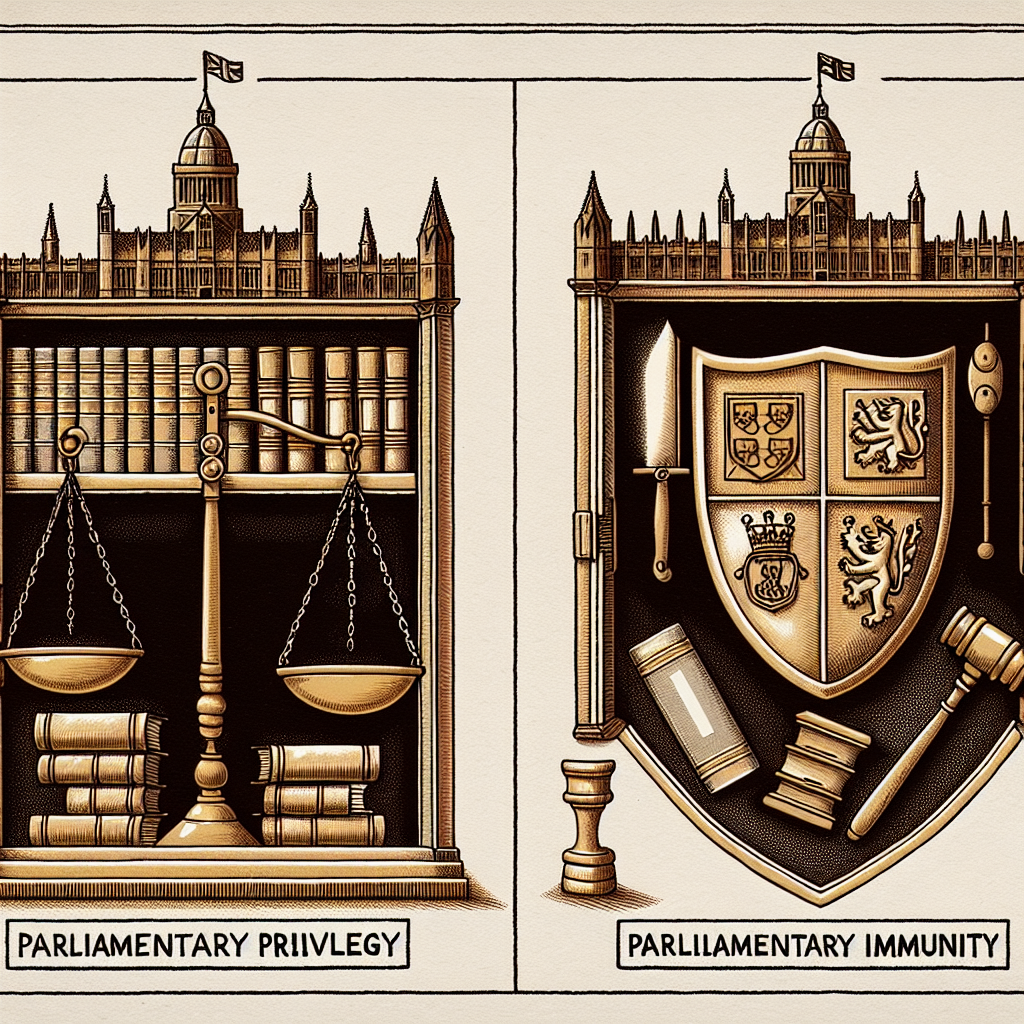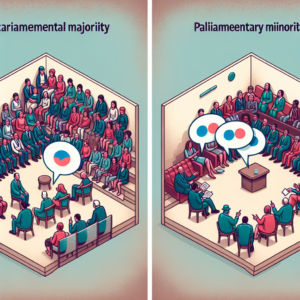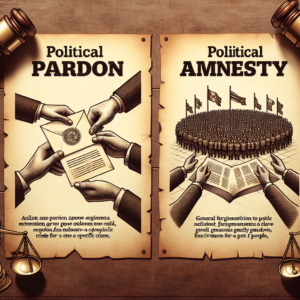As democratic systems across the globe have evolved, so too have the rules and procedures that govern how parliaments and their representatives operate. Two such concepts often misunderstood are parliamentary privilege and parliamentary immunity. While they may sound similar and are indeed interrelated, they are distinct concepts with different implications for members of parliament. This article aims to unravel what exactly these terms mean and what is the difference between parliamentary privilege and parliamentary immunity.
Understanding Parliamentary Privilege: Definition and Features
Parliamentary privilege refers to the rights and immunities that parliaments have to carry out their parliamentary work effectively. Essentially, it is a system of legal protections granted to members of Parliament (MPs) which allows them to perform their duties without fear of external interference or legal repercussions. These rights typically include freedom of speech, freedom from arrest in civil cases, and access to parliament buildings. The idea behind parliamentary privilege is to ensure that MPs can debate openly, express their opinions freely, and carry out their responsibilities without fear of being sued or arrested for their statements or actions in the course of parliamentary business.
The concept of parliamentary privilege can be traced back to the English Bill of Rights of 1689, which was enacted to limit the power of the monarch and establish parliamentary independence. However, while parliamentary privilege is a fundamental part of democracy, it is not absolute. MPs cannot use it to avoid general laws that apply to all citizens, such as criminal laws. Moreover, it must always be used responsibly and in the public interest, meaning that it is subject to certain limitations and regulations to prevent abuse.
As each country has its own constitution and rules of parliament, the extent and nature of parliamentary privilege can differ from one jurisdiction to another. For instance, in some countries, parliamentary privilege may include the right to disregard court orders or subpoenas, while in others, such privileges may be more limited. Nevertheless, the fundamental principle remains the same: to protect the functioning of the parliament by ensuring that MPs can perform their duties without undue interference.
Parliamentary Immunity: What it is and How it Differs from Privilege
While parliamentary privilege pertains to the rights and immunities that enable MPs to perform their duties effectively, parliamentary immunity refers specifically to the legal protection afforded to MPs from prosecution for actions carried out in the course of their duties. In other words, parliamentary immunity protects MPs from legal consequences for their statements or actions in Parliament. This type of immunity is particularly important in politically charged environments, where MPs could be subjected to politically motivated lawsuits or prosecutions.
The most significant difference between parliamentary privilege and parliamentary immunity is perhaps the scope of protection they offer. While privilege protects MPs from interference and enables them to carry out their duties effectively, immunity specifically protects MPs from prosecution. Therefore, parliamentary immunity is a subset of parliamentary privilege – it is one of the key protections that privilege offers.
Again, the specifics of parliamentary immunity can vary from one jurisdiction to another. In some countries, this immunity is absolute, protecting MPs from all forms of prosecution, whereas in others it may be limited, only shielding them from prosecution for actions taken within their official capacity. In most cases, there are mechanisms in place for parliament to waive this immunity in situations where it is deemed necessary, further highlighting the need for responsible use of these protections.
Summary
In conclusion, while both parliamentary privilege and parliamentary immunity play crucial roles in safeguarding the functioning of democratic institutions, they serve distinct purposes. The key difference between the two is that while parliamentary privilege provides a broader range of protections to ensure MPs can carry out their duties without interference, parliamentary immunity specifically protects MPs from prosecution for actions carried out during their parliamentary duties. It is important to understand these differences to ensure the principles of democracy are upheld and the misuse of these protections is prevented.
What is the Difference Between a Diplomatic Mission and a Consulate? Click here and learn about it.











